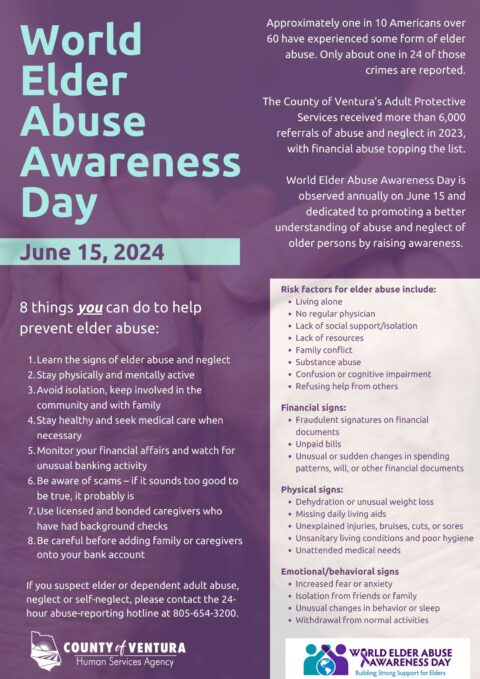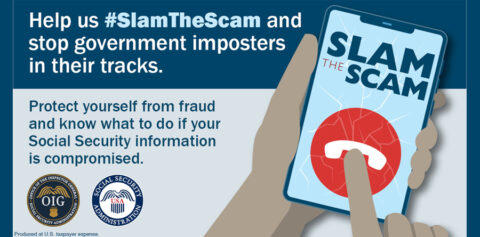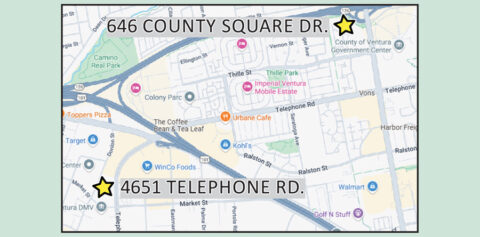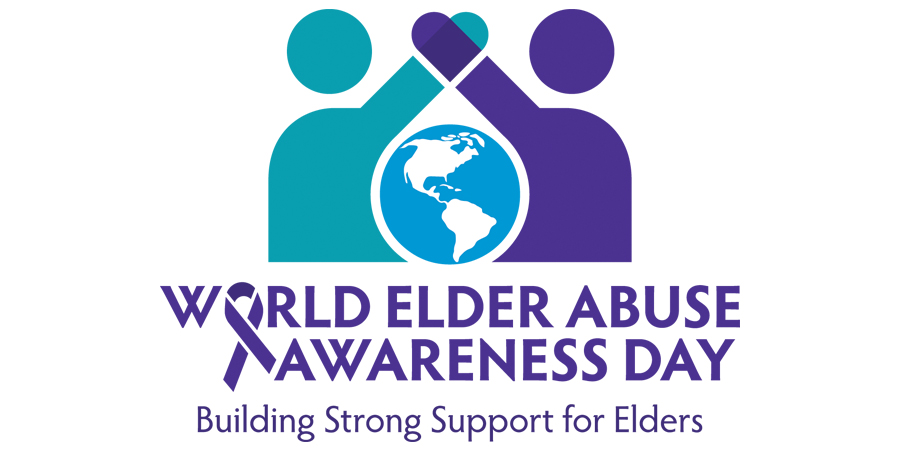VENTURA, California — According to the National Council on Aging, approximately one in 10 Americans aged 60+ have experienced some form of elder abuse. It’s estimated that as many as five million older adults are abused each year. Elders throughout the United States lose an estimated $36 billion annually due to financial abuse and exploitation.
Unfortunately, no one is immune to abuse, neglect, and exploitation. It occurs in every demographic, and can happen to anyone — a family member, a neighbor, even you. Yet it is estimated that only about one in 24 of those crimes are ever reported.
In Ventura County, Adult Protective Services (APS) received more than 6,000 referrals of abuse and neglect in 2023. Financial abuse is consistently one of the most reported types of abuse against elders in our county. Victims may no longer have the means to take care of their basic necessities, such as housing, food, and medical care.
World Elder Abuse Awareness Day (WEAAD) was launched in 2006 and is observed annually on June 15. Today is dedicated to promoting a better understanding of abuse and neglect of older persons by raising awareness of the issue.
Here are eight things that can be done to prevent elder abuse:
– Learn the signs of elder abuse and neglect
– Stay physically and mentally active
– Avoid isolation, keep involved in the community and with family
– Stay healthy and seek medical care when necessary
– Monitor your financial affairs and watch for unusual banking activity
– Be aware of scams – if it sounds too good to be true, it probably is
– Use licensed and bonded caregivers who have had background checks
– Be careful before adding family or caregivers onto your bank accounts
Some of the risk factors include:
– Living alone
– No regular physician
– Lack of social support/isolation
– Lack of resources
– Family conflict
– Substance abuse
– Confusion or cognitive impairment
– Refusing help from others
Physical signs of elder abuse:
– Dehydration or unusual weight loss
– Missing daily living aids
– Unexplained injuries, bruises, cuts, or sores
– Unsanitary living conditions and poor hygiene
– Unattended medical needs
Emotional/behavioral signs of elder abuse:
– Increased fear or anxiety
– Isolation from friends or family
– Unusual changes in behavior or sleep
– Withdrawal from normal activities
Financial signs of elder abuse:
– Fraudulent signatures on financial documents
– Unpaid bills
– Unusual or sudden changes in spending patterns, will, or other financial documents
If you suspect elder or dependent adult abuse, neglect or self-neglect, please contact the 24-hour abuse reporting Hotline at (805) 654-3200, or go online at https://www.reporttoaps.org/ to make a referral. For more information, please visit: https://www.ventura.org/human-services-agency/adult-protective-services/ and http://eldermistreatment.usc.edu/weaad-home. Everyone can act to protect elders – no act is too small.









